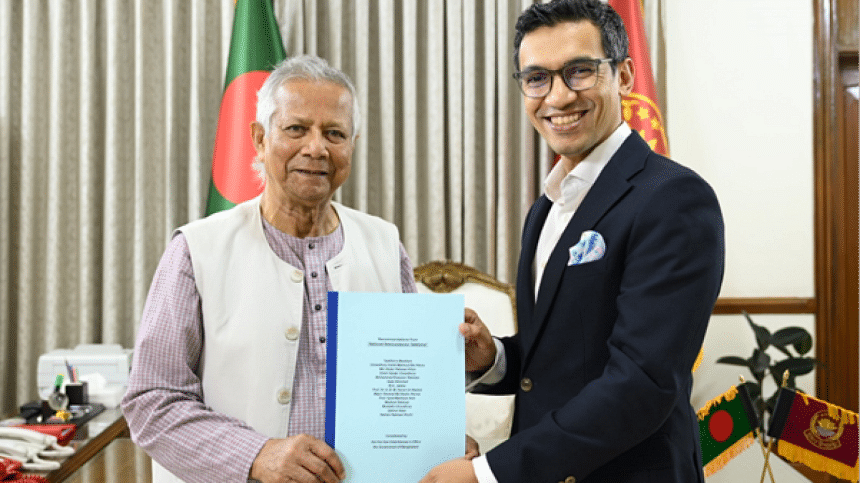The national semiconductor task force submitted its short-term proposals to the chief adviser
Photo: BIDA
“>
Photo: BIDA
The national semiconductor task force has recommended creating a dedicated “semiconductor fund” under the ICT Division or Bangladesh Bank to support new ventures through venture capital or term financing.
The recommendation was part of a series of short-term (2025-26) proposals submitted to the chief adviser on July 1 by Chowdhury Ashik Mahmud Bin Harun, executive chairman of the Bangladesh Investment Development Authority and Bangladesh Economic Zones Authority, according to a press release.
Among the short-term priorities, the task force proposed launching a virtual knowledge portal offering tiered certification aligned with global standards, setting up industry-grade training labs in at least five institutions by 2027, and creating shared cleanrooms for chip packaging and testing.
It also called for practical training for engineers through rotation-based on-site programmes, rolling out certification through select universities, and implementing targeted tax and import policy measures with clear policy guardrails.
Formed on January 1, 2025, the 13-member task force includes representatives from the government, private sector, academia, and the non-resident Bangladeshi community.
It was tasked with identifying capability gaps and outlining a phased roadmap for Bangladesh’s entry into the semiconductor sector.
In its findings, the task force recommended prioritising chip design, testing, and packaging in the short and medium terms, citing the capital-intensive nature of fabrication.
The roadmap focuses on three pillars: skills development, business and policy support, and global partnerships.
Long-term strategies include engaging NRBs in investment and training, and forming strategic G2G partnerships for technical cooperation and knowledge transfer.
“The roadmap offers Bangladesh a clear, feasible route to join the global chip design and testing scene,” said Harun.
“With focused interventions, this could be a turning point in transforming Bangladesh into a technology-driven economy.”
Professor Yunus lauded the task force’s efforts and stressed the need for international collaboration and talent development to implement the roadmap effectively.
The Chief Adviser’s Office will form dedicated working groups to oversee implementation, as Bangladesh eyes a competitive role in the evolving global semiconductor supply chain.



 For all latest news, follow The Daily Star’s Google News channel.
For all latest news, follow The Daily Star’s Google News channel. 
